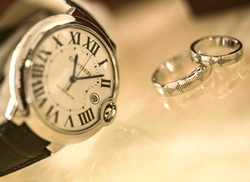Myelle Lansat* says that whether it’s mobile phone data or brand-name clothes, there are many common expensive things that most people can do without.

Photo: Thorn Yang
Showing off lavish items is an undeniable aspect of many Western cultures, but when it comes to making sound investments in expensive items, there are some purchases financial planners say you should exclude.
Before making an expensive purchase, ask yourself whether you can find a cheaper product that will bring as much joy, says Jeremy Straub, the CEO of Coastal Wealth.
He said that while asking for joy from a product may be cheesy, it could help you think of a big purchase differently.
Another question to ask yourself, Straub said, is: “Could I use this money on an experience that would last a lifetime?”
We spoke with several financial planners about common, expensive things that most people can do without.
Here are 12 things they say aren’t worth the money.
Unlimited-data plans
Unlimited-data plans look attractive on the outside, with a lure of saving, but the average person used about 2.8 GB per month in 2017, according to the Organisation for Economic Cooperation and Development.
MoneySavingPro CEO, Rob Webber said a key thing to remember is that unlimited data doesn’t mean unlimited LTE or 4G data; major carriers provide 22 to 50 GB of high-speed data before reducing speeds.
“This money could be allocated elsewhere in their budget,” Webber added.
Gourmet coffee
The difference between gourmet coffee and coffee you make at home is the price and place of consumption.
While many people prefer high-end coffee, it can be a spending trap, especially when you’re paying for the coffee to be made in front of you.
Going out for coffee could cost you hundreds per month and thousands a year, when you can make it yourself at home for much less.
Name-brand everything
Making an investment in a luxury handbag or designer shoes can be worth the money if it spends more time on the streets than in the closet.
But purchasing an entire wardrobe of name-brands clothes isn’t worth the investment, Straub said.
“Mix and match price points, and only invest in a few designer staples you can wear often and with multiple outfits,” Straub said.
New smartphones
Before running to get the newest phone, take a step back and consider the necessity of an upgrade before spending a boatload on it.
“Consider this: you could pay US$550+ for the iPhone 7, or you could pay US$1,000+ for the iPhone X,” Webber said.
“The main differences between the two are that the iPhone X can charge wirelessly and unlock your phone with your face.”
“Could you live without those features? Definitely.”
Nice watches
While many see a shiny, new, brand-name watch as a status symbol, it is not a necessity.
“Smartwatches have changed the game, so you don’t necessarily need a Rolex to show your ‘status’ anymore,” Straub said.
Cable TV plans
Netflix and save?
Many millennials are not purchasing the large pay-TV packages that their parents did.
More and more people are ditching the dish and sticking to streaming because they don’t want to pay for hundreds of channels when they watch only a few, Webber said.
A dozen roses on Valentine’s Day
On average, a dozen roses will cost at least $65, box and all.
For Valentine’s Day, show your love through more meaningful gestures, like cooking a meal or spending the day exploring something new.
Self-charging robot vacuums
Though these vacuums are popular, they are costly and tend to miss spots.
Additionally, they have little resale value if you decide you don’t want an automated machine wandering around your house.
A traditional vacuum is a more cost-efficient option.
Heavy furniture
People tend to spend a good amount of money on large, heavy, expensive furniture to fit their perfect vision of a home.
But for those who move frequently or change tastes, that isn’t the best investment, according to Straub.
“You don’t want to be stuck with pieces you have to sell for a fraction of your purchase price,” he said.
Overpriced restaurant dinners
A luxurious date or group outing may include an over-the-top dinner that you could easily enjoy for less money.
Try lower-priced foods that can give you a great experience without hurting your wallet.
Or, even better, make it at home.
Loans to family members
Lending money to family members is a slippery slope.
“We all too often see that the agreement of payback to our clients is never discussed when it comes to loans given to family members,” Straub said.
“I would try to stay away from these types of personal loans.”
‘Fine’ jewellery
It’s easy to think of jewellery as a good investment — and it can be when you have natural diamonds, emeralds, and other precious gems.
However, your jewellery might not be as valuable as you think.
When you’re looking into purchasing valuable stones, do your research.
Jewellers might use lab-grown diamonds with no inherent or resale value.
As they’re neither precious nor rare, their value will start to decrease as soon as you leave the store.
Natural diamonds will retain their value over time because of their rarity, meaning they can be passed down from generation to generation or sold later down the line.
* Myelle Lansat is a freelance journalist who writes for Business Insider and Bankrate . She tweets at @myellelansat.
This article first appeared at www.businessinsider.com.au.





